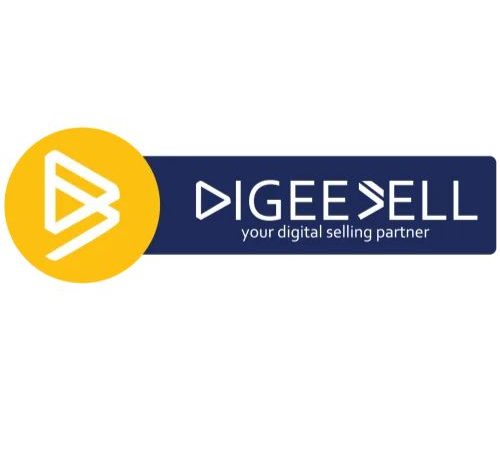In the competitive world of digital marketing, visibility is everything. One of the most effective yet underused tools for improving search engine visibility is schema markup. Implementing schema markup on your website can give your pages a significant boost in search results through rich snippets. At DigeeSell, a leading digital marketing agency in Dubai, we
In the competitive world of digital marketing, visibility is everything. One of the most effective yet underused tools for improving search engine visibility is schema markup. Implementing schema markup on your website can give your pages a significant boost in search results through rich snippets. At DigeeSell, a leading digital marketing agency in Dubai, we specialize in integrating schema markup to enhance SEO strategies for businesses across industries. In this guide, we’ll walk you through quick and actionable tips to start using schema markup more effectively. So if you’re looking to boost your visibility, get those rich snippets, and make your content stand out in search results, then this blog will help you explain and use schema markup strategically.
What is Schema Markup?
Schema markup is a form of structured data that helps search engines better understand the content on your webpage. It is added in the form of JSON-LD (JavaScript Object Notation for Linked Data) or microdata and allows search engines to display rich snippets—like reviews, FAQs, and event details—in search results. These enriched results can increase click-through rates (CTR) and improve your site’s relevance in searches.
Why Use Schema Markup?
Schema markup enhances how your page appears in SERPs (Search Engine Results Pages). Key benefits include:
- Higher CTR due to rich snippets
- Better indexing and content understanding
- Enhanced visibility in voice search
- Support for Google’s Knowledge Graph
- Competitive advantage in local SEO
Quick Tips for Using Schema Markup Effectively
1. Use Google’s Structured Data Markup Helper
Google’s own Structured Data Markup Helper is a user-friendly tool that lets you add schema markup to your site without writing code. Simply select the data type (e.g., articles, local business, products) and highlight page elements to tag them.
2. Prioritize LocalBusiness and Organization Schema
For businesses, especially in locations like Dubai, LocalBusiness schema helps improve local SEO. Include details like business name, address, phone number (NAP), opening hours, and geo-coordinates.
3. Implement FAQ and HowTo Schema
FAQ and HowTo schema are great for boosting visibility in zero-click searches. If your content answers common questions, using these schemas can get you featured directly on Google’s first page as a rich snippet.
Use FAQ Schema to Dominate More SERP Space
Add FAQ schema to your blog posts or landing pages to get those accordion-style dropdowns in Google.
It not only adds depth but boosts your real estate in search results.
Quick Tip: Only include genuine FAQs that add value—not keyword-stuffed filler.
4. Add Product and Review Schema
For e-commerce or service-based businesses, Product and Review schemas can showcase prices, availability, and star ratings in search results. This increases trust and encourages user clicks.
5. Use Breadcrumb Schema
Breadcrumb schema improves the way your URLs appear in search listings by showing the navigational path. This not only improves user experience but also helps search engines understand the hierarchy of your content.
6. Test Your Markup with Google’s Rich Results Tool
Always validate your schema code using Google’s Rich Results Test tool. This ensures your implementation is correct and eligible for enhanced search appearance.
7. Stay Updated with Schema.org
Schema.org is constantly updating its vocabulary to support new content types. Follow the site or subscribe to updates so you can implement the latest markup types relevant to your industry.
8. Add Article and BlogPosting Schema
If your site includes a blog, Article and BlogPosting schemas help highlight author names, publish dates, and featured images, increasing the chance of appearing in news carousels and top stories.
9. Apply Event Schema for Webinars and Promotions
Hosting an event or webinar? Event schema can display dates, times, and registration links directly in search results. This is especially useful for marketing campaigns.
10. Monitor Performance with Google Search Console
After implementation, keep an eye on the Performance and Enhancements reports in Google Search Console. This helps you assess which schema types are generating the most visibility and engagement.
Test and Monitor Your Schema Regularly
Once schema is implemented, use tools like:
- Google Search Console
- Schema.org validator
- Rich Results Test
These help ensure your schema is correctly implemented and eligible for enhanced features.
Quick Tip: Monitor any “Enhancement” reports in Google Search Console for schema-related errors or warnings.
Conclusion – Structured Data Is Your Secret SEO Weapon
Schema markup is no longer optional—it’s essential. It not only enhances your search appearance but also improves click-through rates, visibility, and user engagement. With just a few tweaks, your site can stand out in a cluttered digital world. Incorporating schema markup into your SEO strategy doesn’t have to be technical or time-consuming. These quick tips can help you get started with structured data and drive measurable results. At DigeeSell, we assist businesses in Dubai and beyond in making the most of every SEO opportunity, including schema implementation properly. Ready to enhance your online presence? Let’s talk about your next strategy today.
















